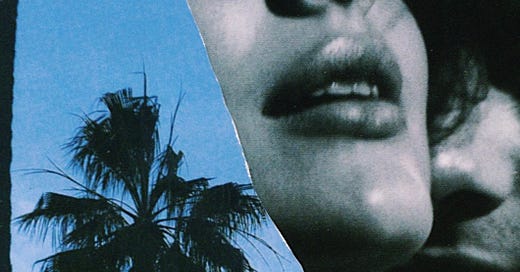Lexi Freiman came on the pod a few months back to discuss her latest novel, The Book of Ayn, which made it onto the Winter Book List.
Check out my review of the book in COMPACT Magazine:
After devouring one Rand book after another, and enmeshing herself in outrageously Oedipal relationships with younger men, Anna finally reaches her breaking point with her new idol. In a bathroom scene as grotesque as it is poetic, she implores a range of deities (God, dogs, Ayn Rand) to stop a toilet bowl from overflowing. As the “sludge breached the toilet rim like a belly-crawling black beast” and spreads across the floor of her latest lover’s bathroom, Rand morphs from savior to scapegoat. “It was all Ayn Rand’s fault. The burning forests, the homelessness, the guns, the suicides, the drugs. Her bad ideas were behind everything. Big Pharma, the billionaire space race, the gig economy, Twitter, the emptiness of modern life … Ayn was the cause of it all.” Anna recoils from her reflection in the “fetid brown soup” and remembers a rather absurd line from Rand’s last interview: “I will not die; it’s the world that will end.”
It is common knowledge that talking about excrement and other bodily fluids is poor manners in respectable company. Thus one can easily dismiss the appearance of “shit talk” in contemporary literature as a sign of the decay of public decency and our collective artistic imagination.
Yet such an aversion to the scatological is hardly a universally “respectable” norm. In fact, a fourth century Hebrew prayer, the asher yatzar (which was mentioned at Holy Lit!), gives praise to the creator for the “gift” of defecation, “without which existence would be impossible.” Prayed both in private and public worship, the prayer expresses gratitude and wonder for the “wisdom” with which God created the human intestinal tract.
That being said, not all fecal scenes in literature are created equally. Surely, there are your fair share of grotesque depictions of human excrement a la De Sade’s 120 Days of Sodom. But others offer scenes whose reverence toward the functioning of the human body is on par with the asher yatzar.
In friend of the pod Jordan Castro’s novel The Novelist, the protagonist speaks of the hallowed bathroom halls with the same awe and amazement he expresses toward other aspects of the created world: from the beauty of natural sunlight cascading into his kitchen while (attempting) to finish his novel, to the variety of trees surrounding him as he walks his dog in the woods.
But as much as going to the bathroom can be a sign of humanity’s goodness and proper functioning, it can also be a sign of its collapse and dysfunction. In The Book of Ayn, defecation is more symbolic of the other side of Eden.
In The Book of Ayn, defecation is symbolic of shame and disappointment—and, one hopes, of purging. The abysmal mess on the bathroom floor echoes the oration delivered by John Galt in Rand’s 1957 novel Atlas Shrugged, in which he insists not to “let your fire go out, spark by irreplaceable spark in the hopeless swamps of the not-quite, the not-yet, and the not-at-all.” But Anna’s hopeless swamp was created by her blind adherence to Rand’s philosophy.
Lately, Rand has not enjoyed the same popularity as other gurus of self-reliance like Jordan B. Peterson, Andrew Tate, Bronze Age Pervert, and Camille Paglia. But Freiman’s engagement with the dissident feminist thinker adds something novel to the neo-Nietzschean wave crashing through the discourse. Rand, for starters, is a woman—and, unlike Paglia, exclusively heterosexual. Her predilections are a useful foil to red-pilled, too-online men who chatter incessantly about “body counts,” age-gap relationships, and hypergamy, or who use evolutionary psychology to blame women for their own romantic failures. In the face of a moralizing, victim-pilled society, Rand’s taciturn libertarianism has the ring of health.
Ultimately, what makes the novel worth reading is its capacity to break through ideology and make ourselves poke fun at ourselves. Such a sense of self-deprecating humor is the first step to the prosaic Benedictine ladder of humility:
Perhaps what makes Freiman’s book so compelling is her ability to use wit and humor to open our eyes to paradox. Showing how attempts to “make the world a better place” are often just a means to feed our fragile egos, she invites readers to laugh at themselves a little and to take themselves less seriously. Though she never offers any definitive answers or solutions, Freiman implies that those who are more in touch with reality than with feculent abstractions—however noble—are most likely to be of real service to the world.
Continue reading here.
And click here to subscribe to COMPACT Magazine…you’ll be glad you did.
Please consider signing up for a paid subscription to this page for more riveting content.
If you’re new to Cracks in Pomo, check out the About page or read up on our Essentials. Also check out our podcast on Spotify, Apple, and YouTube and follow us on Instagram and Twitter.
MASA tortilla chips by Ancient Crunch is offering our followers 10% off their order with the promo code CRACKSINPOSTMODERNITY. Click here to redeem.
graphic by Patrick Keohane @revolvingstyle





